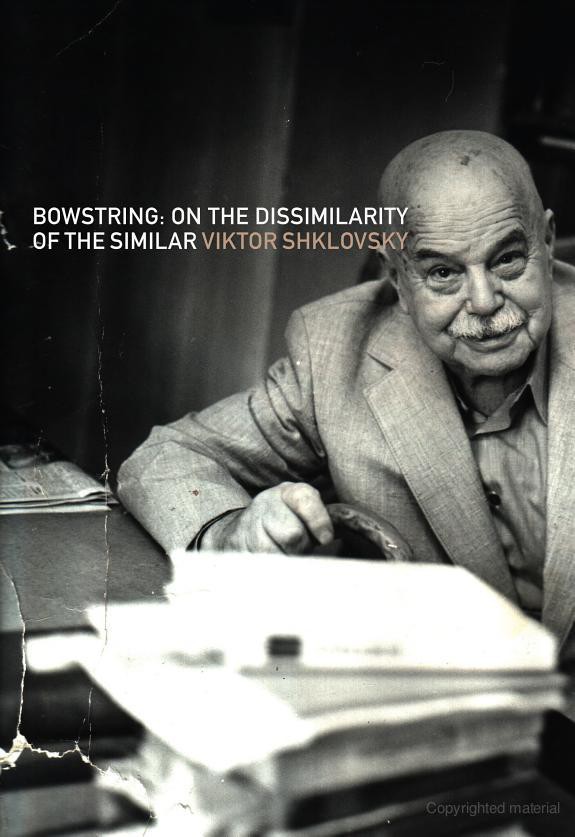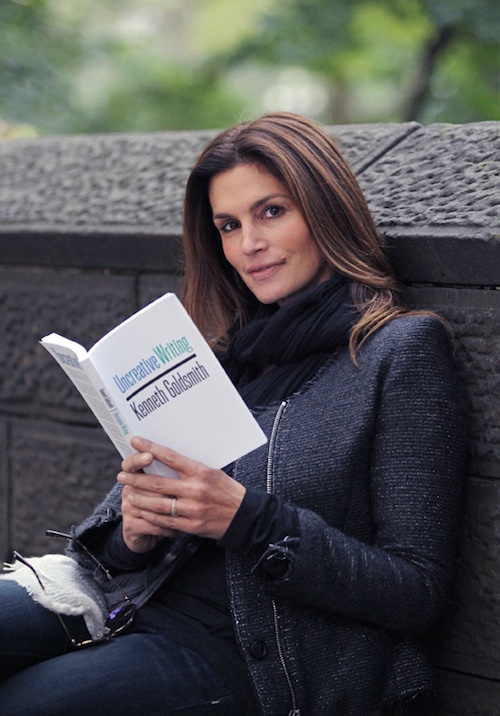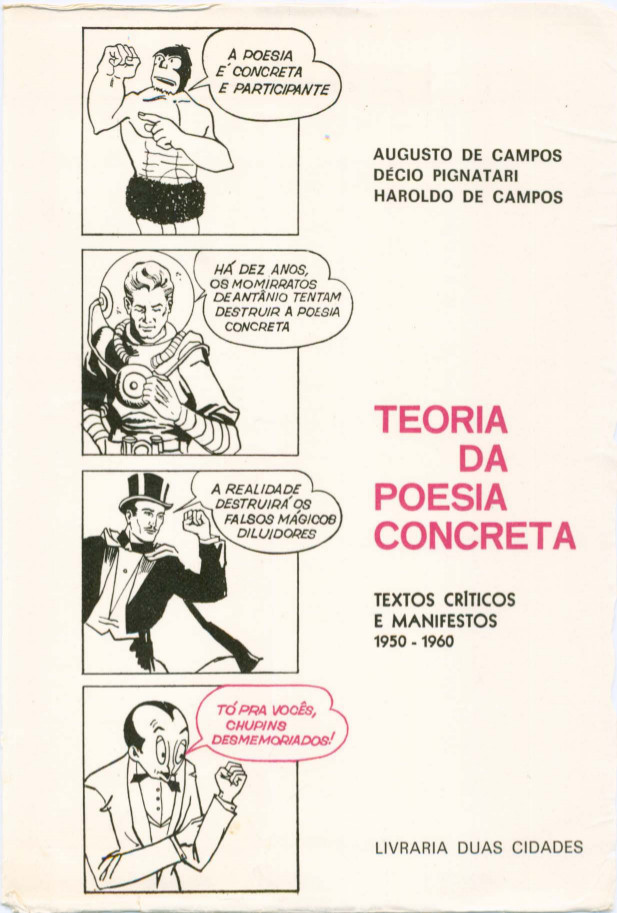Viktor Shklovsky: Bowstring: On the Dissimilarity of the Similar (1970/2011) [RU, EN]
Filed under book | Tags: · literary criticism, literary theory, literature, poetry

“Myths do not flow through the pipes of history,” writes Viktor Shklovsky, “they change and splinter, they contrast and refute one another. The similar turns out to be dissimilar.” Published in Moscow in 1970 and appearing in English translation for the first time, Bowstring is a seminal work, in which Shklovsky redefines estrangement (ostranenie) as a device of the literary comparatist—the “person out of place,” who has turned up in a period where he does not belong and who must search for meaning with a strained sensibility. As Shklovsky experiments with different genres, employing a technique of textual montage, he mixes autobiography, biography, memoir, history, and literary criticism in a book that boldly refutes mechanical repetition, mediocrity, and cultural parochialism in the name of art that dares to be different and innovative. Bowstring is a brilliant and provocative book that spares no one in its unapologetic project to free art from conventionality.
Тетива. О несходстве сходного
Publisher Sovetskii pisatel’, Moscow, 1970
English edition
Translated by Shushan Avagyan
Publisher Dalkey Archive Press, 2011
John F. Byrne Literature series
ISBN 1564784258, 9781564784254
456 pages
Review (Jonathan Foltz, Los Angeles Review of Books)
Review (Bruce Stone, Cinq Magazine)
Publisher (EN)
Google books (EN)
Tetiva: o neskhodstve skhodnogo (Russian, 1970, HTML), Alt link.
Bowstring: On the Dissimilarity of the Similar (English, 2011, EPUB), Alt link.
Kenneth Goldsmith: Uncreative Writing: Managing Language in the Digital Age (2011)
Filed under book | Tags: · appropriation, authorship, conceptual writing, concrete poetry, data, language, literary theory, literature, poetry, technology, text, uncreative writing

“Can techniques traditionally thought to be outside the scope of literature, including word processing, databasing, identity ciphering, and intensive programming, inspire the reinvention of writing? The Internet and the digital environment present writers with new challenges and opportunities to reconceive creativity, authorship, and their relationship to language. Confronted with an unprecedented amount of texts and language, writers have the opportunity to move beyond the creation of new texts and manage, parse, appropriate, and reconstruct those that already exist.
In addition to explaining his concept of uncreative writing, which is also the name of his popular course at the University of Pennsylvania, Goldsmith reads the work of writers who have taken up this challenge. Examining a wide range of texts and techniques, including the use of Google searches to create poetry, the appropriation of courtroom testimony, and the possibility of robo-poetics, Goldsmith joins this recent work to practices that date back to the early twentieth century. Writers and artists such as Walter Benjamin, Gertrude Stein, James Joyce, and Andy Warhol embodied an ethos in which the construction or conception of a text was just as important as the resultant text itself. By extending this tradition into the digital realm, uncreative writing offers new ways of thinking about identity and the making of meaning.”
Publisher Columbia University Press, 2011
ISBN 0231149913, 9780231149914
272 pages
Interviews with author: CUP blog (2011), Mark Allen (The Awl, 2013).
Reviews: Andrea Quaid (American Book Review, 2011), Sam Rowe (Full Stop, 2011), Stephen Burt (London Review of Books, 2012), Amelia Chesley (J Electronic Publishing, 2012), Michael Jauchen (HTMLGiant, c2012), Grant Matthew Jenkins (James Joyce Quarterly, 2012), Andrew McCallum (English in Education, 2013).
Commentary: Special section of American Book Review dedicated to uncreative writing (ed. Doug Nufer, 2011).
HTML (added on 2016-03-01)
EPUB (updated on 2015-10-9)
Augusto de Campos, Décio Pignatari, Haroldo de Campos: Teoria da Poesia Concreta – Textos Críticos e Manifestos 1950-1960, 2a ed. (1965/1975) [Portuguese]
Filed under book | Tags: · concrete poetry, literary theory, literature, poetry, visual poetry

O concretismo alterou profundamente a realidade da poesia brasileira. Revisou o passado literário do país e retomou o diálogo com o modernismo de 1922; pôs ideias em circulação e colocou à arte novos desafios. Hoje, está presente também na linguagem da propaganda, nos slogans da televisão, na diagramação de livros, nas letras de bossa nova. Este volume reúne os textos inaugurais do movimento concreto e recupera uma história que andava obscurecida pelos preconceitos de seus opositores.
First published in 1965
Publisher Livraria Duas Cidades, São Paulo, 1975
207 pages
via Horacio Gutiérrez
Pignatari’s bibliography at Monoskop wiki
Comment (0)
